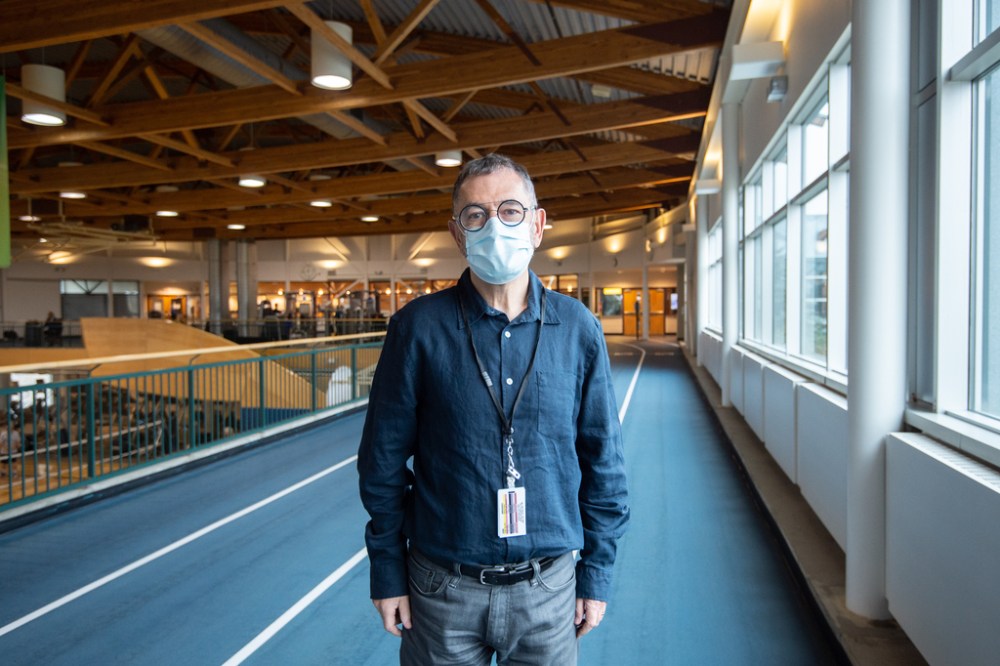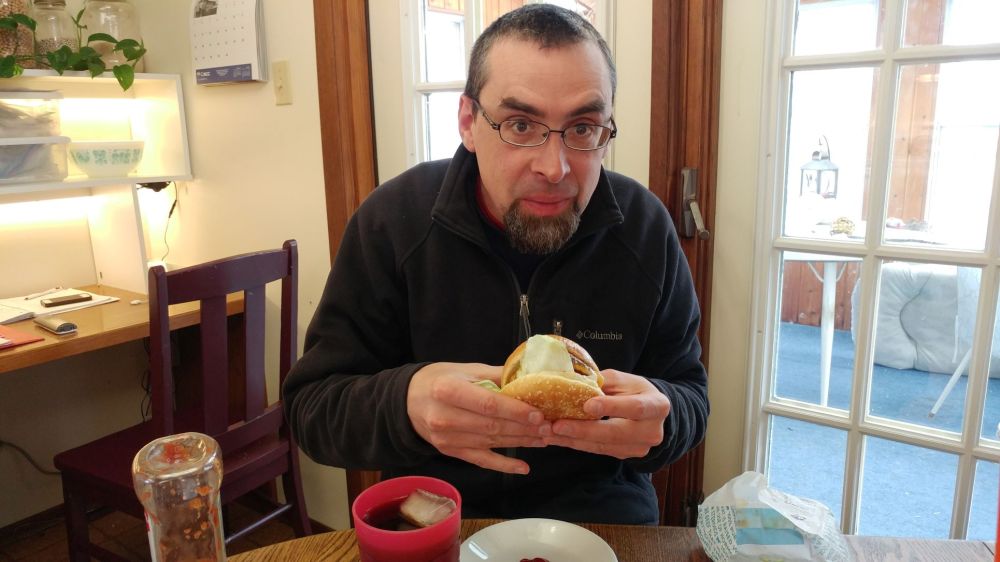Relief in numbers
Long-haulers find comfort in support group
Advertisement
Read this article for free:
or
Already have an account? Log in here »
To continue reading, please subscribe:
Monthly Digital Subscription
$0 for the first 4 weeks*
- Enjoy unlimited reading on winnipegfreepress.com
- Read the E-Edition, our digital replica newspaper
- Access News Break, our award-winning app
- Play interactive puzzles
*No charge for 4 weeks then price increases to the regular rate of $19.00 plus GST every four weeks. Offer available to new and qualified returning subscribers only. Cancel any time.
Monthly Digital Subscription
$4.75/week*
- Enjoy unlimited reading on winnipegfreepress.com
- Read the E-Edition, our digital replica newspaper
- Access News Break, our award-winning app
- Play interactive puzzles
*Billed as $19 plus GST every four weeks. Cancel any time.
To continue reading, please subscribe:
Add Free Press access to your Brandon Sun subscription for only an additional
$1 for the first 4 weeks*
*Your next subscription payment will increase by $1.00 and you will be charged $16.99 plus GST for four weeks. After four weeks, your payment will increase to $23.99 plus GST every four weeks.
Read unlimited articles for free today:
or
Already have an account? Log in here »
Hey there, time traveller!
This article was published 18/02/2022 (1393 days ago), so information in it may no longer be current.
For the first time in Manitoba, a virtual COVID-19 support group is giving long-haulers a chance to share their experiences with each other.
“To hear people who are going through the same thing as me is such a relief,” said Cathy Scofield-Singh, one of 39 Manitobans registered for the virtual support group run by the Winnipeg Regional Health Authority’s pulmonary rehabilitation program and Community MyHealth Team Clinicians.
Scofield-Singh said she felt validated after participating in the first session of the Living with Long COVID Education and Support Group Feb. 15.
She’s endured severe fatigue, brain fog and tinnitus for the past two years after going through an infection “that felt like an elephant was sitting on my chest.”
She became ill after a trip to Britain in the fall of 2019, before COVID-19 tests were available.
She was never able to get a confirmed result; after seeing several specialists, she was told she might have a presumed case of COVID-19. She was accepted into the support group because of her long-term symptoms. The uncertainty surrounding long COVID makes it particularly important to hear from others who are going through it, she said.
“I know that I’m not just faking it. So many people just think that COVID long-haulers are not real, and when you start talking with other people, you hear their symptoms and they’re the same as your symptoms, (you’re thinking), ‘oh good, I’m not going crazy!’” the Ste. Rose du Lac resident said.
The virtual support group is a seven-week pilot project that involves occupational therapists, physiotherapists, respiratory therapists, speech-language pathologists, dietitians, pharmacists and social workers, the WRHA said in a statement. No one who organizes the program was available for an interview.
As a therapist and someone who’s been dealing with long-term symptoms since she got sick in March 2020 (also with a presumed COVID-19 infection), Lynne Pinterics said support groups are critical.
“Groups are the most healing place for people, whether it’s children or adults, because they gain from the others that commonality — the experience of that, the feelings that go along with that,” she said. “You’re supported and less discouraged.”
After participating in the first virtual session, Pinterics said it will help with her own healing and her ability to practise mindfulness as a way to manage relapses of her long-haul symptoms, which can worsen with overexertion. Exercise or rest alone doesn’t ease the fatigue, she said, urging professional development for local physicians to study long COVID.
“It does feel like it’s a bit of a rollercoaster,” dealing with recurring symptoms, she said.
Since last fall, she has been involved in other Long Haul COVID-19 clinics through the pulmonary rehabiliation program, which runs in-person clinics at Deer Lodge, Misericordia and Seven Oaks, but this was her first chance to hear from others who are going through it.
“It would have been fabulous if I could have had this group a year and a half ago.”
Both women spoke about the frustrating toll the uncertainty and lack of widespread understanding of long-term COVID-19 has had on them.

It’s unknown how many Manitobans have long-haul COVID-19. Dr. Alan Katz is trying to find out.
Katz and a team of about 12 investigators from the University of Manitoba are analyzing anonymized health data that captures Manitoba’s population so they can find out how many of those infected develop long COVID, what the risk factors and most common symptoms are, and what treatments are needed. They expect to have initial data in about three months that could help guide patients, health-practicioners and policymakers.
“One of my greatest concerns is that there are going to be a lot of people with symptoms and we haven’t identified services they will need that we need to start planning for,” Katz said.
It’s not a clinical trial — the researchers are analyzing data (including with an automated computer algorithm they developed to search through thousands of clinical notes) to find out what kinds of symptoms COVID-19-positive Manitobans reported to their physicians. They’re analyzing health data from March 2020 to December 2021.
They expect to capture the full scope of long COVID in the province, even in the absence of official diagnoses of long haul COVID. The research doesn’t require participation from long-haulers, but despite that, Katz said he’s received 15 or 20 inquiries.
“Clearly, there a lot of people who are experiencing symptoms that are disturbing to them and they are struggling to find the help they need,” he said. “They’re looking for answers.”
Last month, Dr. Joss Reimer, medical lead of Manitoba’s vaccine task force, spoke publicly about COVID-19’s effects on the brain, citing a U.S. study that found 25 per cent of people who contracted COVID-19 had neurological symptoms, including “persistent cognitive impairment,” — even people who only had mild symptoms of the virus.
katie.may@freepress.mb.ca

Katie May is a general-assignment reporter for the Free Press.
Our newsroom depends on a growing audience of readers to power our journalism. If you are not a paid reader, please consider becoming a subscriber.
Our newsroom depends on its audience of readers to power our journalism. Thank you for your support.


